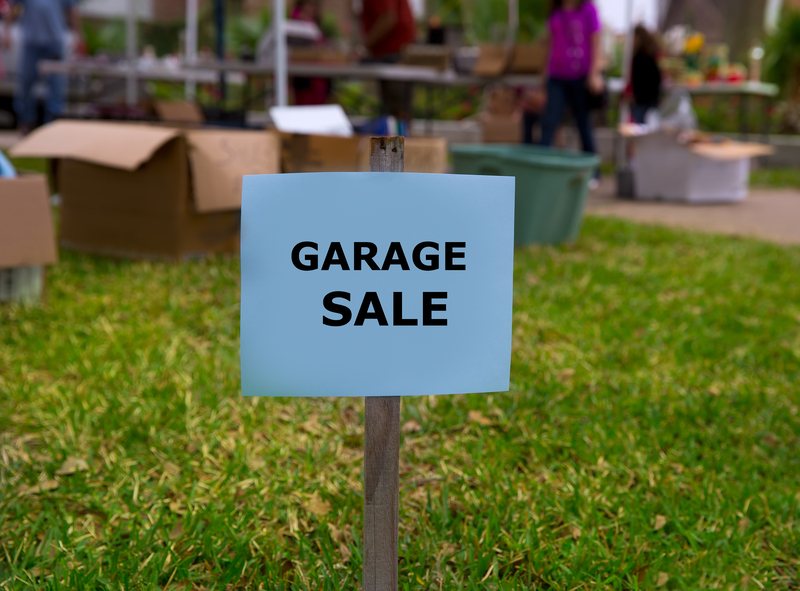Discover the Ultimate Ways to Perfect Your Home Recycling Plan
Are you struggling to create a home recycling plan that truly works? With growing environmental concerns and increased awareness, recycling at home has become more important than ever. However, turning good intentions into effective, sustainable actions can be challenging. In this comprehensive article, we'll dive deep into the best strategies to perfect your home recycling system, explore innovations in recycling, and arm you with smart tips for reducing waste right at the source.

Why Is an Effective Home Recycling Plan Important?
Developing a comprehensive home recycling plan does more than just reduce your waste output. By recycling efficiently, you:
- Decrease landfill waste and lower your carbon footprint.
- Conserve natural resources by reusing materials.
- Support the circular economy and reduce energy usage.
- Encourage sustainable habits within your household and beyond.
The right plan can streamline waste sorting, reduce contamination, and make recycling an effortless part of your daily routine.
Assessing Your Current Recycling Habits
Before you craft the ultimate home recycling plan, take a closer look at your current habits:
- What items do you recycle most?
- Are you sorting materials correctly?
- How much waste are you generating weekly?
- Do you know your local recycling guidelines?
Being aware of your household's waste patterns is the first step to optimizing your recycling process at home.
Top Tips to Perfect Your Home Recycling System
Ready to step up your recycling game? Here are proven strategies and insider secrets for a winning home recycling plan.
1. Understand Local Recycling Regulations
Each municipality or region has different recycling rules. To avoid wish-cycling (tossing items in the bin and hoping they're recyclable), research:
- Accepted and prohibited materials in your area.
- Schedules for curbside pickup or drop-off points.
- Changes in policies on items like plastics, electronics, and batteries.
Making a list of accepted recyclables and posting it near your bins can prevent mistakes and contamination.
2. Choose the Right Storage System
Organization is vital for a successful home recycling program. Invest in:
- Labeled, color-coded bins for paper, plastics, metals, and glass.
- Separate containers for hazardous waste, electronics, and compostables.
- Compact or stackable bins for small spaces.
An organized system encourages household participation and keeps materials neat until collection day.
3. Learn What Can (and Can't) Be Recycled
Some common misconceptions can ruin a good recycling plan. Items such as greasy pizza boxes, certain plastics, and food-contaminated containers can spoil entire recycling batches.
- YES: Newspapers, cardboard, clean bottles and jars, aluminum cans.
- NO: Plastic bags, Styrofoam, soiled paper, batteries, and lightbulbs (unless specified).
Check with local resources and avoid "wish-cycling" to ensure your efforts count.
4. Cut Down on Contamination
Contamination is one of the biggest obstacles in effective home recycling plans. Keep these rules in mind:
- Rinse containers to remove food residues.
- Remove lids, caps, and non-recyclable labels.
- Flatten cardboard boxes for more space.
- Keep non-recyclables out of the blue bin.
5. Explore Advanced Recycling Options
Many household items still aren't accepted in your curbside bin, but you can go the extra mile:
- Use drop-off sites for batteries, electronics, textiles, and hazardous waste.
- Find programs for plastic films and shopping bags (often at supermarkets).
- Recycle lightbulbs, ink cartridges, and appliances through manufacturer takeback programs.
These practices transform a good home recycling plan into a model of sustainability.
Incorporating Composting Into Your Plan
While recycling manages inorganic materials, composting is the perfect complement to any home waste management plan.
Benefits of Composting at Home
- Reduces landfill waste: Compostable material makes up 30%+ of household trash.
- Improves soil and supports local gardens.
- Turns kitchen scraps into valuable, eco-friendly material.
Set up a small bin or outdoor pile for food scraps, eggshells, coffee grounds, and yard waste. Just avoid adding meat, dairy, and oily foods.
Leverage Technology for Recycling Success
Smartphones can actually improve your home recycling plan. Download local recycling apps to help identify accepted materials, organize pick-up schedules, or find alternative disposal sites. Use reminders and family calendars to keep everyone on track.
Educate Your Household
The best recycling strategy involves buy-in from the whole family. Host a quick educational session, make recycling fun for kids with games and sticker charts, and set up easy-to-understand instructions near each recycling station. Empower everyone to be stewards of the environment!
Reduce, Reuse, THEN Recycle!
Even the strongest recycling plan can be undermined when we generate too much waste. The three R's are a hierarchy for a reason:
- Reduce: Buy in bulk, opt for reusable products, and avoid single-use packaging wherever possible.
- Reuse: Repurpose jars, containers and bags. Donate or sell unused items instead of discarding them.
- Recycle: As a last step, make sure recyclable items are handled properly.
Advanced Tips: Beyond the Basics of Home Recycling
Looking to graduate from beginner to advanced recycler? Consider these innovative strategies to truly perfect your household recycling plan:
1. Start a Terracycle Station
Some brands and companies offer specialized recycling programs for hard-to-recycle items--think toothpaste tubes, snack wrappers, pens, and more. Set up a Terracycle box and watch your household landfill contribution drop!
2. Host a Neighborhood Swap or Recycling Drive
Encourage friends and neighbors to improve community recycling. Organize swaps for toys, clothes, electronics, or furniture, and coordinate bulk drop-offs for tough items.
3. Buy Recycled Products
Close the recycling loop by choosing products made from post-consumer recycled materials. Look for packaging and products marked with recycled content logos.
4. Call Out Greenwashing
Be aware of misleading claims about recyclability or sustainability. Look up products' recycling details yourself, and prioritize transparent brands. A truly effective home recycling plan starts with informed household purchases.
Overcoming Common Recycling Obstacles
Even the most organized households face challenges, including lack of space, sorting confusion, and policy changes. Stay on top of the game by:
- Visiting your town's recycling website regularly for updates.
- Posting cheat-sheets above bins to keep everyone informed.
- Reviewing your plan every few months and making necessary tweaks.
Remember, flexibility and willingness to adapt will help keep your home recycling plan effective--and enjoyable.

FAQ: Perfecting Your Home Recycling Plan
-
What is the most common mistake in home recycling?
Contamination. Even a small amount of food or non-recyclable items can spoil a whole batch. -
How can I get my kids to recycle?
Make recycling a game or challenge and get them involved in sorting or crafts with recycled materials. -
Are compostable plastics actually compostable at home?
Usually not. Most require industrial composting facilities to break down fully. -
Do I need to remove labels from cans and jars?
Not always necessary, but rinsing containers and removing caps is key.
Conclusion: Make Your Home Recycling Plan Unstoppable
Perfecting your home recycling plan isn't about instant perfection, but rather continuous improvement. By assessing your habits, learning local rules, organizing your bins, cutting down on waste, and empowering everyone in your household, you'll ensure your recycling program is as efficient and sustainable as possible.
**Let's make the planet greener, one home recycling bin at a time.** Start with small changes, adapt as you learn, and inspire others by sharing your progress. The ultimate recycling journey begins right at home!